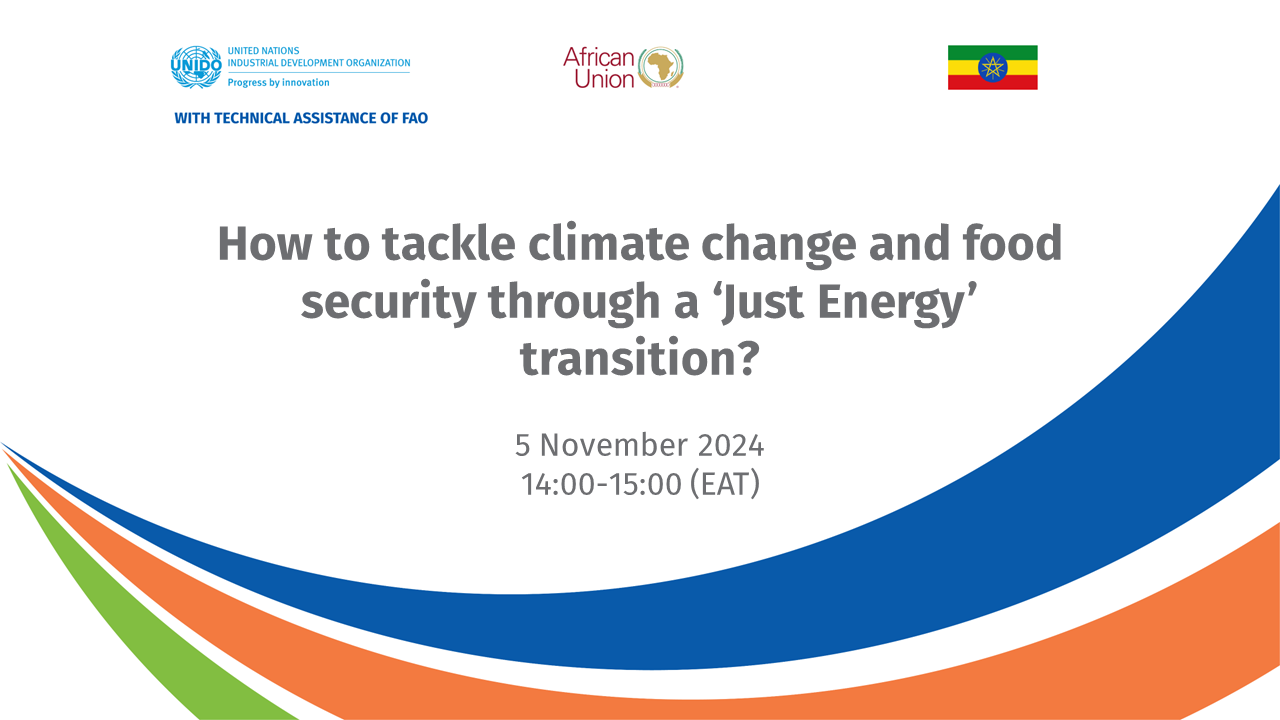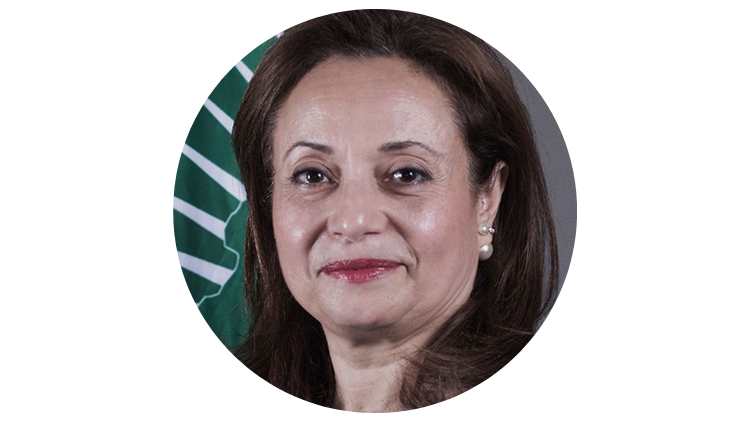


The issue:
With the world population expected to surpass 10 billion by 2050, the demand for food, energy and water supply is expected to escalate significantly. The transformation pathways of the food, energy and water systems are deeply interconnected. Agri-food systems use the largest amount of freshwater resources and also about 30% of the world’s energy and are responsible for one-quarter of greenhouse gas (GHG) emissions. The Intergovernmental Panel on Climate Change (IPCC) estimates emissions from various stages of the lifecycle of food products to be 10.8 to 19.1 Gt CO2e per year, accounting for anywhere between 21–27% of global emissions. This underscores the need to accelerate investments in developing techniques to track food systems’ GHG emissions, expand and promote nature-based solutions, and climate-friendly processing, manufacturing and transporting practices. All three systems are adversely impacted by climate change, exacerbating existing social, economic and environmental challenges, particularly in vulnerable least-developed countries (LDCs) and small island developing states (SIDS).
Addressing the food-water-energy nexus is at the heart of resolving the global food shortfall, ending hunger and mitigating the impact of climate change. The World Resources Institute estimates that food production needs to increase by 56% by 2025 (compared to 2010). Simultaneously, emissions from food systems must be reduced by 67% (without expanding land use). This is particularly critical as 50% of the world’s vegetated land is already dedicated to agriculture.
Successful food system transformation that optimizes productivity and sustainability depends on a successful clean energy transition. Energy is essential at every stage of the food chain, including irrigation, primary production, post-harvesting, transportation, cooling, storage and cooking. It is also a key enabler for higher yields, value addition, increased incomes, lower losses, greater climate resilience and decarbonization.
However, the global energy system is still far from providing equitable access to those in need. In the industrializing countries, 685 million people and many agri-businesses in rural areas still lack access to electricity. Around 2.3 billion people have no access to clean cooking facilities, relying instead on traditional solid biomass, kerosene, or coal as their primary cooking fuel. Food production and consumer prices remain vulnerable to sudden changes in global fossil fuel supply. Unreliable power supplies hinder the adoption of modern agricultural technologies and value-added processing. Even in areas with access to electricity, high-energy costs impede agri-business growth, leading to higher food prices and reduced access for poorer households.
In order to address these shortfalls without adversely impacting the environment, it is imperative to increase the use of renewable and energy efficient solutions. These can play a crucial role in meeting the electricity heating, cooling, and transport of food systems in both developed and developing countries. There are many viable technologies, which can be deployed along agri-food chains. These include solar irrigation, mini-grids, agrivoltaics, efficient cold storage and refrigeration appliances, efficient cooking and process heat solutions, as well as bioenergy from residues. Such solutions can contribute to end hunger, lower production costs and GHG emissions while increasing the adaptive capacity of agri-businesses. They can also provide employment opportunities for the local production and distribution of clean energy solutions.
However, so far, the roll-out of such clean energy solutions in agri-food sector remains limited and faces extensive policy, regulatory, capacity and financial barriers. There is a lack of integrated cross-sectoral policies, financial instruments and investments addressing the energy, food and water nexus holistically and simultaneously. Scaling up the use of renewables in the agri-food industry will require concerted efforts between government, private sector and financial institutions.
Objectives:
The session will:
Discuss options for industrializing countries to increase the productivity, sustainability and resilience of the agri-food industry through the integration of clean energy solutions along the entire value chain.
Focus on how these options enhance agri-food processing, reduce post-harvest losses and provide clean cooking services.
Identify best practices to leverage public and private finance and investment for the industrial roll-out of integrated clean energy agri-food solutions.
Key guiding questions:
What are good examples and best practices for promoting clean energy solutions to improve the food-energy-climate climate nexus at different levels within the government and private sector?
What is needed to scale public and private finance and investment for the industrial roll-out of integrated clean energy agri-food solutions?
What are the key actions needed to turn the tide on climate change in food systems by 2030?
Session format and structure:
After an introduction by the moderator, the “Davos style” session will facilitate a discussion between leaders of the private food industry, multilateral finance institutions and Ministers from LDCs and SIDS. No formal speeches will be used, in order to foster an open debate and lively interaction.
Setting the scene and moderation

Mr. Patrick Tonui, Head of Policy and Regional Strategy, Global Association for the Off-Grid Solar Energy Industry
Patrick Tonui is the Head of Policy and Regional Strategy at GOGLA, representing the off-grid solar industry. He leads efforts to engage governments and partners, fostering a strong market for off-grid lighting and electrical systems. With over 20 years of experience in public policy, economic, and trade development, Patrick has worked with the International Finance Corporation and Maryland's Department of Business and Economic Development. He holds an MBA and an MSc in International Business and speaks English and Swahili.
Keynote speech

Ms. Amani Abou-Zeid, Commissioner for Infrastructure and Energy, African Union Commission
H.E. Amani Abou-Zeid, Egyptian, was elected the new Commissioner for Infrastructure and Energy of the African Union Commission. H.E. Abou-Zeid was an international development lead expert who has been serving Africa in various leading positions for over 30 years, mainly in international organizations: AFDB, UNDP and USAID. Her work focused on managing large international programmes and establishing and maintaining strategic partnerships.
Panelists

Mr. Mohammed Benzekri, Chargé de Mission for the COO, OCP Africa
Mr. Benzekri joined OCP in 1991 as an electrical engineer at the Khouribga mine. In 1997, he joined the Sales Department where he held several responsibilities, including relations with specialized institutions, communication and market intelligence. In 2011, he held the position of the Local Market Sales Director and opened the first OCP representative office in Abidjan. As of 2016, he served as Regional Vice President of OCP Africa-West Africa and in October 2023 he was appointed as Senior Vice-President Farmer Solutions for OCP Africa. Since September 2024, he serves as Chargé de Mission for the COO. Mr. Benzekri is holder of a PhD from the University of Bordeaux 1.

H.E. Motuma Mekassa, Special Advisor to the Minister of Water and Energy of Ethiopia
Honorable Motuma Mekassa served as a Member of Parliament from 2011 to 2021. He currently serves as Special Advisor to the Minister of Water and Energy, with the rank of State Minister, having previously served as National Security Adviser to the Prime Minister. He has also served Ethiopia's Minister of National Defense, Minister of Mines, Petroleum and Natural Gas, and Minister of Water, Irrigation and Electricity. Formerly, he has served as a leader of different government sectors at the regional level and as expert of the planning and programming department. He has also served as a chairperson and as a member of boards in different institutions at regional and federal level and has organized workshops, led teams of government experts and planners, community leaders, promoters and technicians.

Ms. Bhavana Pramod Bagalwadi, Co-founder of Deep Carbon Africa Pvt Ltd, Mauritius
In her latest venture in climate action, Bhavana bridges the gap between science and business of carbon markets whilst creating an impact with local communities. She along with her collaborates design and develop carbon neutral strategies using biomass from invasive species to make biochar for application on soil with farmers. They are in discussions on projects in South Africa and Ghana. Bhavana has close to 3 decades of experience in running successful ventures in fuel monitoring, RFID tags in Ghana, Kenya, Tanzania, and Uganda. She is an ACCA & FCA, holds a master’s in Business Administration from University of Notre Dame, Australia and ISO 9001, 14000, 18001 auditor. Bhavana is passionate about empowering women entrepreneurs. She is a strategic advisor and co-founder in Taxshe, an NGO. She is a recipient of the World Bank SDG awards.

Mr. Yunus Alokore, Program Director, East African Centre for Renewable Energy and Efficiency, East African Community
Yunus Alokore, joined EACREEE in January 2024 as a Technical Expert seconded by the United Nations Industrial Development Organization (UNIDO). His main role is steer fund raising and organisation development endeavours of the Centre. Yunus holds a Master’s degree in Energy Engineering, a Bachelor’s degree in Biosystems Engineering and he is an MBA finalist. He is a Certified Energy Auditor and Certified Industrial Energy Professional by the Association of Energy Engineers of USA and Certified Expert in Climate and Renewable Energy Finance by the Frankfurt Institute of Finance and Management. Yunus brings to the Center over 10 years’ experience in promoting renewable energy and energy efficiency in several countries.

Ms. Kornelia Iipinge-Silishebo, Program Director, Energy-Water Food Nexus, SADC Centre for Renewable Energy and Energy Efficiency, Southern African Development Community
Kornelia Iipinge-Silishebo is the Project Coordinator for the SADC Renewable Energy Entrepreneurship Support Facility at SACREEE which is supported by the International Renewable Energy Agency (IRENA). Prior to joining SACREEE, she worked with the University of Namibia (UNAM) on the Future Resilience for African Cities and Lands (FRACTAL) project; the United Nations Development Programme (UNDP) Namibia Office and Gobabeb Namib Research Institute. Her skills include renewable energy management, project management, environmental social assessment, and climate change research. She holds an MSc in Integrated Water Resources Management and a BSc (Hons) in Environmental Science.